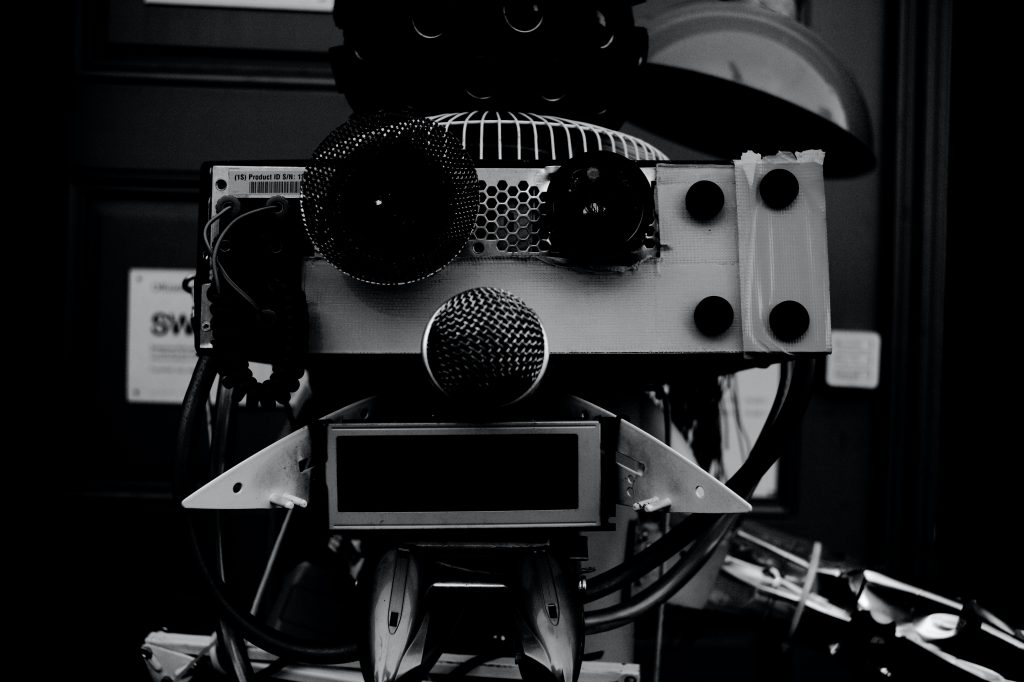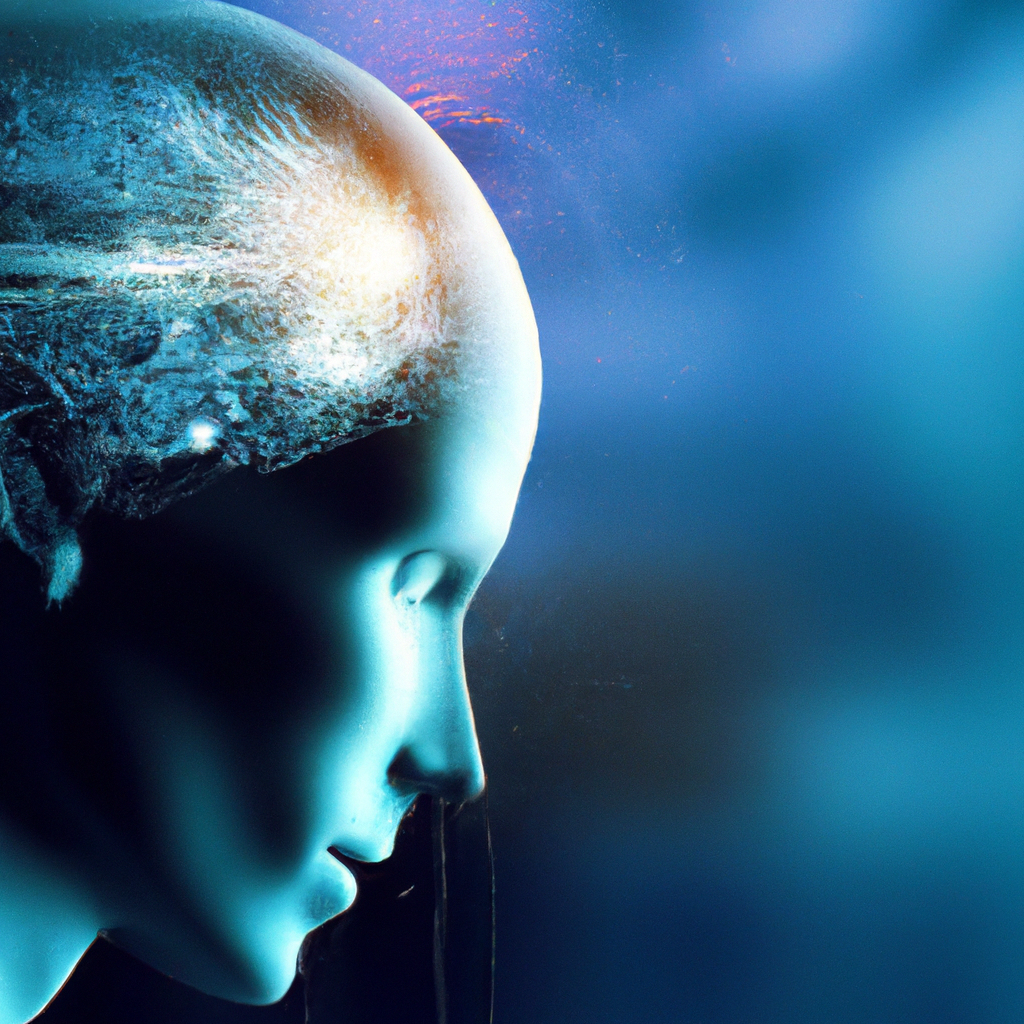Artificial Intelligence (AI) is a fascinating field that has the potential to revolutionize the way we live and work. Simply put, AI refers to the ability of machines to exhibit human-like intelligence, learning, and problem-solving capabilities. From self-driving cars to virtual assistants like Siri and Alexa, AI is already woven into our daily lives. But what exactly is AI and how does it work? In this article, we will explore the concept of AI and delve into its various applications, shedding light on the incredible possibilities this technology holds for the future. So, get ready to embark on an exciting journey into the world of AI and uncover its secrets!
What is artificial intelligence (AI)?
Artificial Intelligence (AI) refers to the simulation of human intelligence in machines that are programmed to think and learn like humans. It involves the development of computer systems capable of performing tasks without explicit human instructions, thereby imitating human capabilities such as problem-solving, decision-making, speech recognition, and natural language processing. AI encompasses various technologies and techniques that allow computers to perceive, reason, and take action, making it one of the most exciting and rapidly progressing fields in technology today.
Definition of artificial intelligence
Artificial Intelligence can be defined as the branch of computer science that deals with the creation of intelligent machines capable of performing tasks that require human intelligence. These tasks may include understanding natural language, recognizing objects and patterns in images, reasoning, learning, and adapting to new situations. AI systems can be classified into two main categories: narrow AI and general AI. Narrow AI is designed to perform specific tasks proficiently, while general AI aims to possess the same level of intelligence as humans across various domains.
History of artificial intelligence
The history of artificial intelligence can be traced back to ancient times, where ancient Greek myths and folklore often depicted mechanical beings imbued with human-like qualities. However, the concept of AI as we know it today began to take shape in the mid-20th century. In 1956, the Dartmouth Conference marked the birth of AI as a field of study. During this conference, the term “artificial intelligence” was coined, and scientists and researchers began exploring ways to build intelligent machines.
In the early days, considerable progress was made, with pioneers like Alan Turing and John McCarthy laying the foundation of AI. Turing introduced the concept of the “Turing Test” to determine a machine’s ability to exhibit intelligent behavior indistinguishable from that of a human. McCarthy, on the other hand, developed the programming language LISP, which played a crucial role in AI research.

Goals of artificial intelligence
The overarching goal of artificial intelligence is to create machines that can perform tasks that typically require human intelligence, surpassing human capabilities in speed, accuracy, and reliability. AI aims to develop systems that can understand, perceive, learn, reason, and make decisions in a way that mimics human cognition. These intelligent machines should be able to adapt to changing environments, handle vast amounts of data, and solve complex problems with innovative approaches.
Another important goal of AI is to automate repetitive and mundane tasks, freeing up human resources to focus on more creative and intellectually challenging endeavors. By reducing human error and increasing efficiency, AI seeks to revolutionize various industries, from healthcare and finance to transportation and manufacturing.
Types of artificial intelligence
Artificial Intelligence can be categorized into two primary types: narrow AI (also known as weak AI) and general AI (also known as strong AI). Narrow AI is designed to perform specific tasks efficiently and outperform humans in those particular domains. Examples of narrow AI include speech and image recognition systems, virtual personal assistants, and recommendation algorithms used in online platforms.
On the other hand, general AI is an area of research aimed at building machines that possess human-level intelligence across a wide range of tasks and domains. General AI systems would exhibit understanding, consciousness, and self-awareness, allowing them to perform any intellectual task that a human being can do. While general AI remains a goal for researchers, its development is complex and poses ethical challenges.

Applications of artificial intelligence
Artificial intelligence finds application in numerous fields, revolutionizing industries and enhancing human capabilities. In healthcare, AI is used for diagnosing diseases, analyzing medical images, and personalizing treatment plans. AI-powered robots assist in performing surgeries with precision and efficiency. In finance, AI algorithms can predict market trends, optimize investment portfolios, and detect fraudulent activities.
In transportation, autonomous vehicles are becoming a reality, thanks to AI. AI systems make predictions and decisions about traffic patterns, optimizing routes for efficient commuting and reducing accidents. AI also plays a vital role in natural language processing and translation services, making communication between different languages more seamless.
Benefits of artificial intelligence
The benefits of artificial intelligence are vast and extend across various domains. AI has the potential to enhance productivity and improve efficiency in industries, leading to cost savings and higher profits. By automating repetitive tasks, AI allows humans to focus on more critical and creative activities, promoting innovation and intellectual growth.
In healthcare, AI can aid in early disease detection, assist in complex surgeries, and help analyze medical data on a large scale, leading to improved patient outcomes. AI-powered virtual assistants enable personalized user experiences, making interactions with technology more natural and intuitive.
Furthermore, AI has the potential to address global challenges such as climate change, poverty, and energy efficiency. By analyzing vast amounts of data and making predictions, AI can help in developing sustainable solutions and improving resource allocation.

Challenges and concerns surrounding artificial intelligence
While the potential of artificial intelligence is immense, it also presents challenges and concerns that need to be addressed. One of the primary concerns is the impact of AI on employment. As more tasks become automated, there is a fear of job displacement and the need for reskilling and upskilling the human workforce.
Ethical considerations surrounding AI are another significant area of concern. AI systems can encode biases present in the data they are trained on, leading to discriminatory outcomes. Ensuring fairness and accountability in AI algorithms is crucial to prevent unintended consequences and societal harm.
Moreover, the rapid advancement of AI raises questions about data privacy and security. AI systems rely on vast amounts of data, and protecting personal information is crucial to maintain user trust. Ensuring responsible data usage and implementing robust security measures is essential to prevent data breaches and unauthorized access.
Ethical considerations in artificial intelligence
The ethical considerations in artificial intelligence revolve around accountability, transparency, fairness, and privacy. As AI systems make autonomous decisions in various domains, it becomes essential to understand how these decisions are being made and ensure that they align with societal values and norms.
AI algorithms should be designed with fairness in mind, preventing biases based on race, gender, or any other protected attributes. Transparent and explainable AI is crucial so that users can understand why and how decisions are being made. Moreover, user privacy should be protected, and data should be handled responsibly to maintain trust.
By incorporating ethical guidelines in AI development and deployment, society can reap the benefits of AI while minimizing any potential harm or unintended consequences.

Future of artificial intelligence
The future of artificial intelligence holds immense potential. As technology continues to advance, AI is expected to play a central role in shaping the world we live in. Advancements in machine learning, deep learning, and neural networks are making AI systems more powerful and capable.
The proliferation of AI-enabled devices and smart systems will lead to an increasingly interconnected world. From smart homes to smart cities, AI will be at the heart of making our environments more efficient, sustainable, and user-friendly.
However, the future of AI also brings forth complex challenges and considerations. The development of general AI that rivals human intelligence raises questions about its impact on society, the job market, and the very nature of what it means to be human. Ensuring responsible development and deployment of AI systems will be crucial in harnessing its potential while maintaining ethical and social standards.
Conclusion
Artificial intelligence has come a long way, and its impact on society and various industries cannot be overstated. From transforming healthcare and finance to revolutionizing transportation and communication, AI is reshaping the world we live in.
However, as AI continues to evolve, it is important to address the challenges and ethical concerns associated with it. By incorporating fairness, transparency, and accountability in AI systems, we can ensure that AI benefits humanity and advances us towards a brighter future.
With responsible development, the future of artificial intelligence holds immense promise. As we strive for innovation and progress, let us embrace AI as a tool that augments human capabilities and helps us tackle the world’s most pressing challenges. Together, we can harness the power of AI to shape a better future for all.










